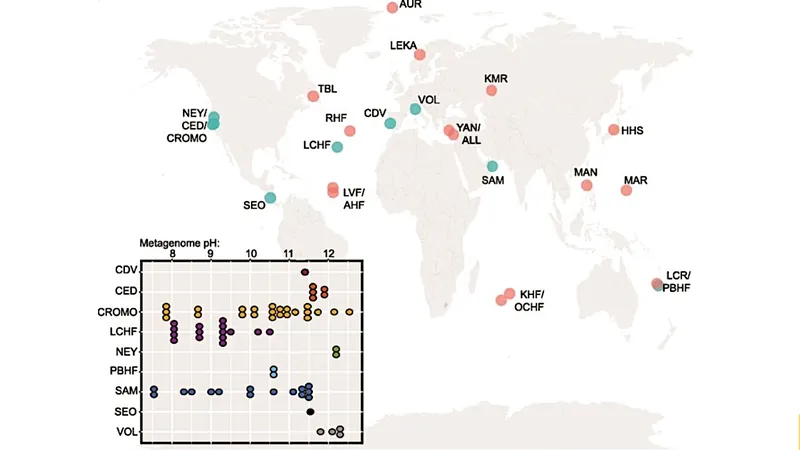
Revolutionary New Model Predicts Heart Disease Risk More Accurately Than Ever!
2024-12-12
Author: Li
Introduction
In an exciting breakthrough for cardiac health, researchers have developed a new prediction model that significantly enhances the forecasting of coronary heart disease (CHD) risk by integrating a polygenic risk score (PRS) and a polysocial score (PSS). This innovative approach, recently detailed in the Annals of Internal Medicine, offers hope for better risk assessments that account for both genetic and social factors.
Study Overview
The study, conducted by Dr. Mohammadreza Naderian and his team at the Mayo Clinic in Rochester, Minnesota, focused on data from the U.K. Biobank, consisting of nearly 400,000 participants who were recruited between 2006 and 2010. The results revealed a striking advancement in prediction accuracy. Specifically, for every standard deviation increase in PSSCHD (the polysocial score related to CHD) and PRSCHD (the polygenic risk score), the hazard ratios were found to be 1.43 and 1.59, respectively.
Impact of the New Model
This multifaceted model reclassified approximately 12% of participants when assessing a 10-year CHD risk threshold of 7.5%, indicating that the newly included genetic and social metrics could provide more precise risk determination. Notably, individuals who were reclassified faced a 1.86 times higher risk of developing CHD compared to those who retained their initial categorization.
Clinical Implications
Moreover, the incorporation of these scores into existing clinical risk calculators, known as pooled cohort equations (PCE), yielded a superior performance that was evident in improved net benefits while retaining excellent calibration. Similar positive outcomes were replicated when applying the prediction model to other established risk measures, such as the Predicting Risk of Cardiovascular Disease (EVENT) and QRISK3 algorithms.
Conclusion
The implications of this research are profound, with potential benefits to both individual patients and public health at large. "Our findings support the integration of PRS, social determinants of health, and lifestyle-psychological factors in CHD risk equations," Dr. Naderian stated. "This could lead to significant advances in reducing the burden of coronary heart disease, paving the way for personalized risk evaluations and targeted prevention strategies."
As the healthcare community continues to address the rising prevalence of heart disease, this revolutionary prediction model stands to redefine how risks are assessed and managed, potentially saving countless lives through better preventive measures. Stay tuned, as we uncover more about the future of heart health and preventative medicine!





 Brasil (PT)
Brasil (PT)
 Canada (EN)
Canada (EN)
 Chile (ES)
Chile (ES)
 Česko (CS)
Česko (CS)
 대한민국 (KO)
대한민국 (KO)
 España (ES)
España (ES)
 France (FR)
France (FR)
 Hong Kong (EN)
Hong Kong (EN)
 Italia (IT)
Italia (IT)
 日本 (JA)
日本 (JA)
 Magyarország (HU)
Magyarország (HU)
 Norge (NO)
Norge (NO)
 Polska (PL)
Polska (PL)
 Schweiz (DE)
Schweiz (DE)
 Singapore (EN)
Singapore (EN)
 Sverige (SV)
Sverige (SV)
 Suomi (FI)
Suomi (FI)
 Türkiye (TR)
Türkiye (TR)
 الإمارات العربية المتحدة (AR)
الإمارات العربية المتحدة (AR)